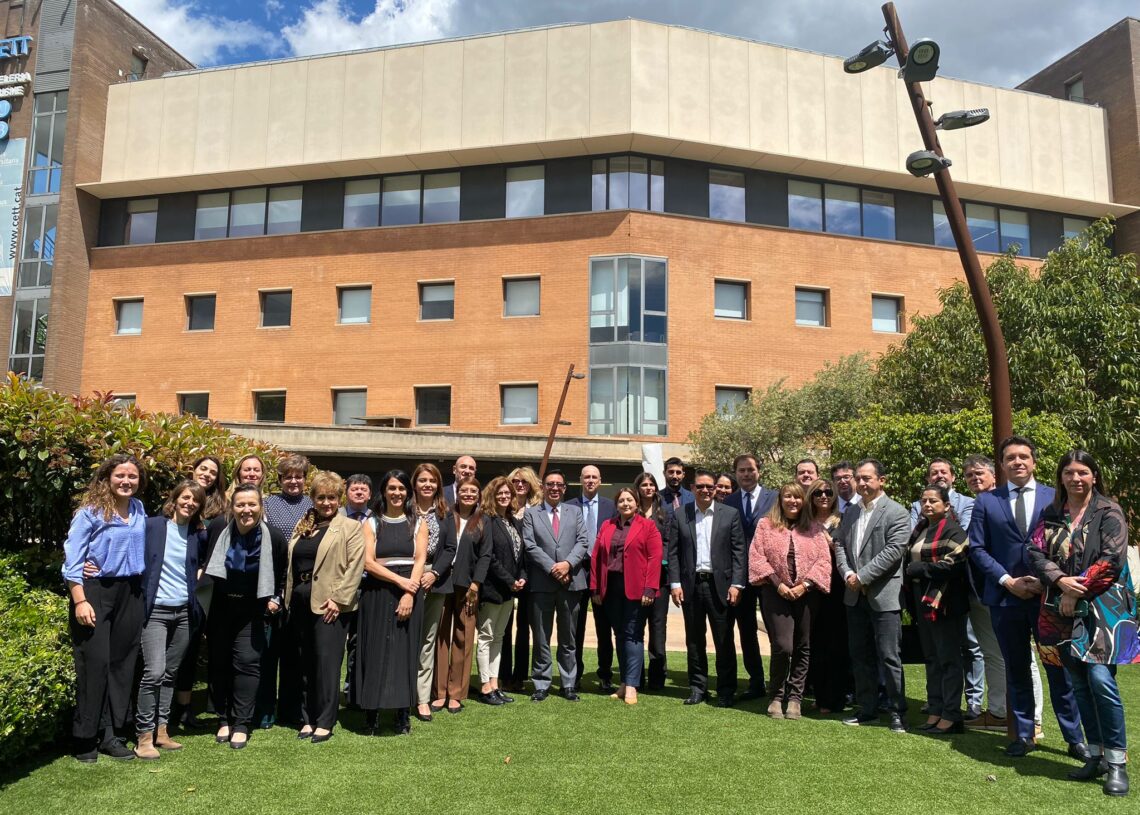The II Workshop “The gender dimension in the relationship between drug trafficking and human trafficking” brought together in Barcelona more than 30 prosecutors and judges from Latin America and the European Union with the aim of developing common guidelines to identify cases of women victims of human trafficking investigated and/or prosecuted for drug trafficking crimes. Complex situations that require rethinking the approaches developed so far to focus on two sometimes interconnected crimes: drug trafficking and trafficking.
During two sessions, the prosecutors reflected on the protection of women and LGTBIQ+ persons who, as victims of human trafficking, often for the purpose of sexual exploitation, are coerced by criminal networks and become involved in drug trafficking and drug sales. This involvement in criminal activities entails risks to their own lives when, by acting as a transport, they ingest narcotics or hide them in their bodies. In addition, if they are arrested, they face prison sentences that further complicate their situation of vulnerability, which adds to the debate on the alternative measures to prison that can be applied in these cases.
In the words of Rosa Ana Morán, Chief Prosecutor of the Special Anti-Drug Prosecutor’s Office in Spain, “the phenomenon of drug trafficking is fundamentally cross-border, so cooperation must always be at the heart of a good investigation”.
An articulated approach to a common problem
The articulation between COPOLAD and the three AIAMP networks (the Ibero-American Network of Specialized Prosecutors against Trafficking in Persons and Smuggling of Migrants – REDTRAM; the Network of Anti-Drug Prosecutors of Ibero-America – RFAI; and the Specialized Gender Network – REG) has facilitated the organization of this second workshop (the first was in October 2023, in Buenos Aires). The presence of representatives of the three networks has been key to understanding and addressing this common problem from different perspectives.
The initiative is led by the FIIAPP and the International Italo-Latin American Organization (IILA), in collaboration with the Public Prosecutor’s Office of Argentina and the Attorney General’s Office of Spain.
“The main interest is to articulate the collaboration between the networks of prosecutors on both sides of the Atlantic, so that shared solutions can be generated for situations that represent a global challenge, such as the case of women victims of trafficking who are exploited by drug trafficking mafias,” said the director of COPOLAD III, Borja Diaz.
For her part, the coordinator of AIAMP’s REDTRAM and co-head of the Human Trafficking and Exploitation Prosecutor’s Office (PROTEX) of the Public Prosecutor’s Office of Argentina, Alejandra Mángano, prominent the importance of sharing case information between the trafficking network and the drug trafficking network in strategic transnational cases and added: “states have the duty to identify victims of human trafficking and this challenge includes thinking of a practical mechanism that allows prosecutors to identify those who may be involved both in the production phase, as well as in the transport or distribution of drugs”.
In addition, the coordinator of AIAMP’s Gender Specialized Network (REG) and federal prosecutor of the Public Prosecutor’s Office of Argentina, Mariela Labozzetta, stressed that “gender violence is still conceived in some instances as exclusive to the domestic sphere, but it is present in the public sphere and in the criminal sphere. This is why this networking is so important: we must not focus on the weakest links, but on the heads of the organizations”.
Specific strategies and institutional responses
The II Workshop “The gender dimension in the relationship between drug trafficking and human trafficking” was attended by representatives from Argentina, Brazil, Colombia, Chile, Guatemala, Paraguay, Peru and Spain, as well as from the cooperation programs of the European Union with Latin America and the Caribbean EUROFRONT, EL PACCTO and the Support Program of the European Union law enforcement in the fight against drugs and organized crime in Peru.
Throughout two days, prosecutors have worked on possible indicators of vulnerability in women and LGTBIQ+ persons charged in drug trafficking crimes and have shared best practices on organized crime investigations to overcome the inertia of incriminating the lowest links of the organizations to move up the chain of responsibility.
In addition, the meeting facilitated an exchange of knowledge on solutions and strategies for early detection, such as the training of multidisciplinary teams that apply a differential approach to gender and human rights from the outset, context investigations, the generation of tools for a comprehensive approach, and the relevance of asset investigations and asset forfeiture as incentives to guide criminal policy towards the middle and hierarchical lines of the organizations.






